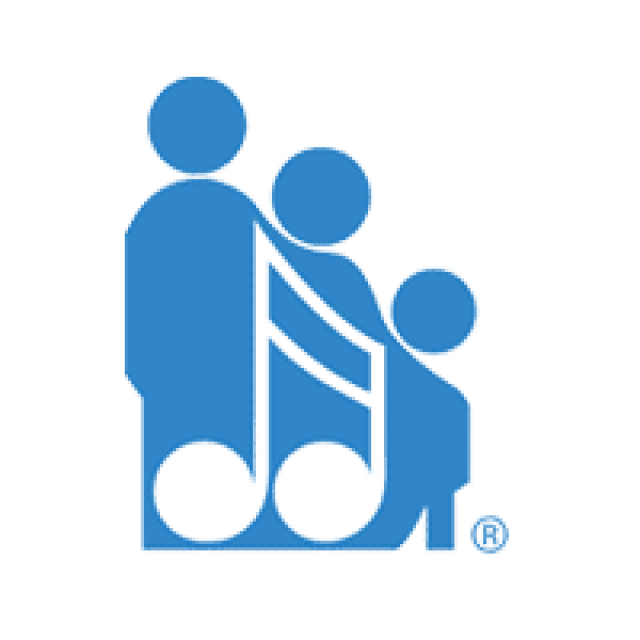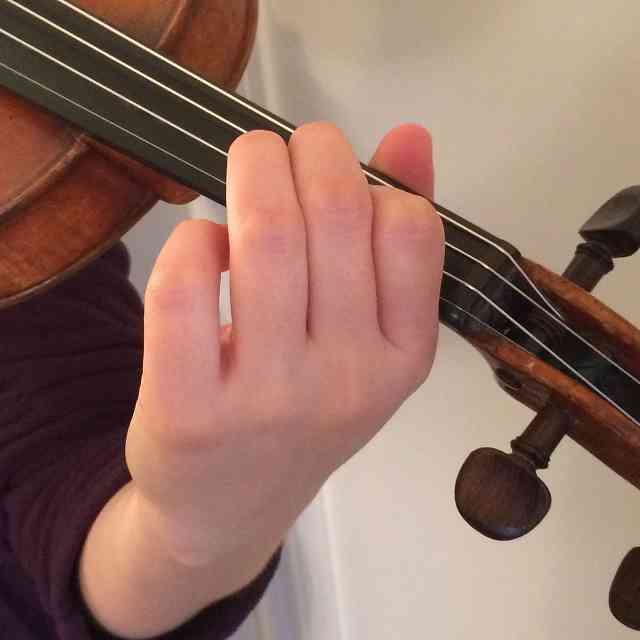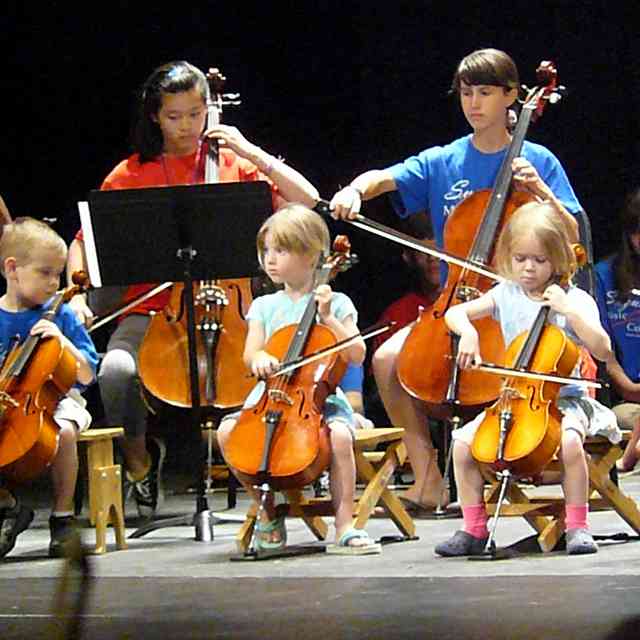Balancing Passion, Burnout, and Boundaries
By Alicia Randisi-Hooker
This fall, I will enter my thirty-ninth year as a Suzuki Cello teacher. That’s more than half of my life, and a record I am extraordinarily proud of. Along the way, I’ve followed my passion for music making and teaching, allowing it to guide me through some very challenging times, both personally and professionally.
As a very young teacher, I thought I needed to be “on call” at all hours, available to tune cellos via the phone at 9:30 or 10:00 at night, or to give up weekends and holidays for play-ins, workshops, and music school functions, all while also attempting to parent my infant son and daughter while my husband was a medical school student, intern, and resident. I was often away from home to perform as well. While I had competent help in the form of a live-in au pair, supportive parents of my students, and my own parents only a two-and-a-half-hour drive away, my life was like a high wire act with no net. Anything could topple me pretty quickly and easily in those days, and I often found myself sick with a different parade of viruses and ailments that pushed me to the brink. At that stage, I was our family’s sole earner. When my husband finished his residency, I was pre-diabetic, exhausted, and generally unwell. It took moving far away and into an empty void to wake me up and get me to examine my internal pressure to be all things to all people.
The work we do is important; in fact, I happen to share my dear mentor, Annette Costanzi’s view that the work we do is probably the most important work there is. We mold and shape the values and aesthetic development of future generations. We impart the notion that all children can learn to play music to a high level. We believe that musical study has deep meaning, cultural significance, and contributes to the creation of “noble hearts,” open minds, and critical thinking skills that serve humanity. All of that is marvelous, but it loses its meaning if we do not embody and model these things ourselves. To achieve that, we must be at our best. To be at our best, we cannot allow burnout and lost passion to creep into our psyches, our spirits, or our well-being.
I have come to find that some things are essential. Chief among them are: clear policies about make-up lessons, office hours when we’re free to talk with parents, conferences about their child’s progress, and time off that is honored by the families we serve. Publishing a calendar of events for each semester has also helped me think ahead so that I can honor commitments and ask families to do the same. It makes a huge difference in how we anticipate meeting our own needs and those of our students.
I’ve built my fee structure in a way that allows me time off when my students are also out of school. I’ve made it so that I have paid time off by structuring my tuition schedule so that families pay the same amount every month, regardless of whether we have lessons every week or not. Much like private school or college tuition, the fee remains the same for the academic year. It is then incumbent upon each family to budget for the lessons. No refunds or make-up lessons are given if the student misses for any reason, other than one make-up for illness at the last minute. In this way, my income is stable, with regular adjustments for cost-of-living increases factored in. The result is fewer missed lessons and far less chasing people down for pay for lessons. I have found that most community schools have similar models, and private studio teachers can structure their payment the same way. We need to honor the hours and financial commitment we’ve invested in ourselves as teachers and set our fees accordingly. No one is truly served when we undervalue our work. I’ve done market research where I live to set my fees accordingly, neither pricing myself “out of the market,” nor being so low that I feel put upon. We aren’t selling fast food here!
I would also be remiss if I forgot to talk about sleep. No phone calls from parents after 9 pm, and no text messages either! Whatever it is can wait until a good night’s sleep and adequate rest have given me a fresh perspective the next morning. It’s especially important for those times when we’re hit with a surprise withdrawal from the studio, or a problem with practice, or a despondent parent or child who can’t figure out what we are trying to teach them, who, for reasons few of us can quite grasp, tend to pop up in our inboxes when we’re about to climb into bed. That boundary is sacrosanct, and I learned it the hard way one night when a distraught parent called me at 9:45 pm because she couldn’t tune her child’s cello. Trust me, it can wait, whatever “it” is.
In addition to clarifying these boundaries, I take strides to fuel my growth as both a teacher and an artist. I’ve found that attending SAA and ASTA conferences and workshops inspires me to keep growing in both areas. Forming deep relationships with colleagues who inspire me and keeping in touch with them over the years is also a great source of inspiration and motivation. I feel so fortunate to have the friendship of so many brilliant colleagues who are also as dedicated to their own growth as I am to mine! It is worth the effort to maintain those relationships because none of us is an island, and we lift each other up through community and support.
I have sometimes chosen my own improvement as a player over more students and teaching, to keep me sharp and engaged as a teacher. My teaching has benefitted from my performing, and vice versa. For me, these are two sides of the same coin, and I cannot neglect one over the other for any length of time if I want to give my best. Ultimately, that’s a choice everyone must make for themselves, but for me, the balance of the two is essential and has prevented me from burning out in both endeavors. I can’t imagine my life without both.
Other ways I have found to prevent burnout and enhance my quality of life are working out with weights at the gym, practicing yoga with others, hiking in the mountains where I live, and socializing with friends who are non-musicians. I love cooking and enjoy creating delicious and nourishing meals for myself and my family and friends, too.
While none of this is complicated, it is sometimes challenging to put into place in our lives. I do believe that our longevity as teachers depends on it. Let’s model a holistic, balanced life for the families we serve, and protect our own health and well-being in the process.
Register for the Annual General Meeting!
Jul 19, 2024







